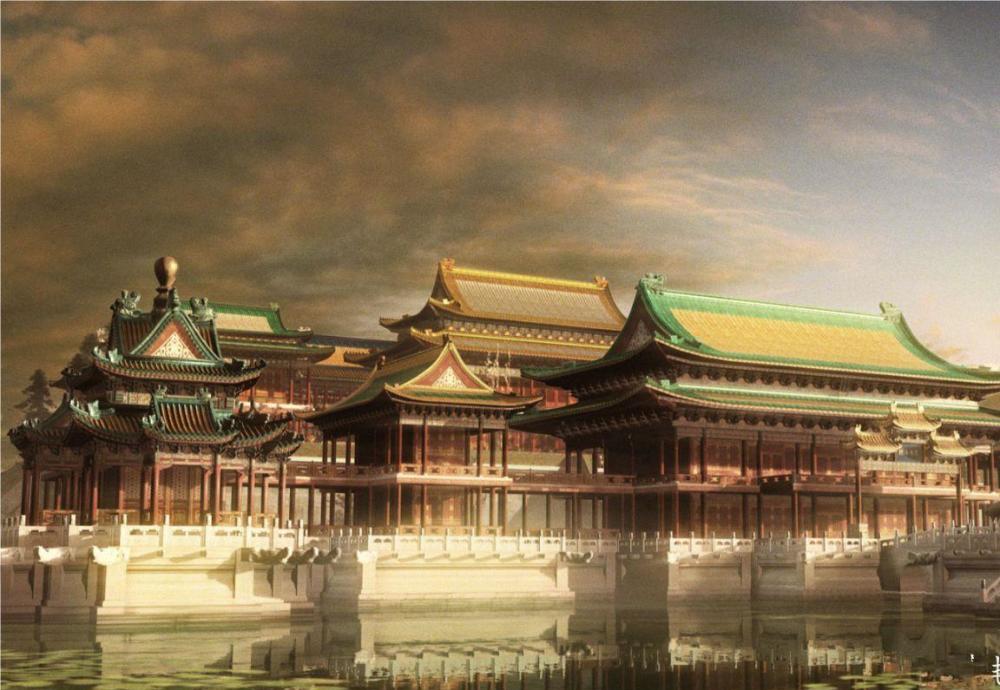Introduction: The Chinese nation has always attached great importance to territorial territory, as a country with agricultural production as the main economic source, the country's territory means more grain, more population. In addition, many kings will also regard the territorial scope of a country as their own power and influence, and the size of the territory will show the strength of the emperor to a certain extent.
So in many of the most prosperous dynasties, kings expanded outwards, one to expand their sphere of influence, and the other to secure their borders. It was only at that time that China did not have a clear sense of border lines, and it was not until the modern European powers invaded China's territory that China was forced to demarcate the border line.

In the seventeenth and eighth centuries, when the Qing Dynasty was still dreaming of a heavenly kingdom, the Western countries on the other side of the Atlantic entered the "Industrial Revolution" period, and the national strength of the Western countries was greatly enhanced with advanced technology, but the narrow land area of these countries did not match their own productive forces, in order to expand the market for the primitive accumulation and plunder of capital, the Western powers began their own colonial road.
In the beginning, these powers only targeted themselves in countries that were relatively close to them and relatively weak, and after establishing a series of colonies, the power of the powers snowballed, and eventually they targeted China. Soon, in the face of Britain's great power, the decadent and incompetent Qing Dynasty could not resist at all, followed by a series of unequal treaties.
In addition to compensating the other side for a large amount of gold and silver in the treaty signed by britain, there was also a large amount of land, and many places became British colonies, which also led to Hong Kong's secession from Chinese mainland. After the British demonstration, other imperial powers also launched aggression against China, and the final result ended with the Signing of unequal treaties by the Qing government.
Among the imperialist powers that invaded our country, the country that had encroached on our territory the most was Russia, which once encroached on more than one and a half million square kilometers of Land in China through many unequal treaties. Such a huge area is larger than the territory of many countries in the world, and Britain, France and other countries have also encroached on the territory.
As a result of the aggression of these imperial powers, many vassal states seized the opportunity to become independent, and the territory of our country was further weakened. At the same time, the territory occupied by these powers has also brought many problems to our country, and even after the founding of New China, some neighboring countries have not had very good relations with our country, which is also the consequence of territorial occupation.
With the founding of New China, China's strength has been continuously enhanced, and the victories in many wars such as the War of Resistance Against Japanese Aggression and the War to Resist US Aggression and Aid Korea have also enhanced China's international status. At this time, China began to strive for its own territorial rights and interests in the international community, and in the early sixties, China signed a series of border treaties with Myanmar, Nepal, Mongolia, Afghanistan and other countries.
The signing of these treaties allowed china to safeguard its rights and interests in the border territories, but the borders of the Soviet Union, India, Vietnam and other countries have not yet been determined, and the negotiation process is more difficult than before. Even if there are great difficulties, our country has not given up, and after the 1960s, the relations between China and the Soviet Union have continued to deteriorate, and the negotiations between the two sides have entered an impasse.
At the same time, the Soviet Union itself, as one of the world powers, did not have much fear of China, in order to show its position in Asia, the Soviet Union also tried to interfere in China's sovereignty, such a move also made a series of conflicts between China and the Soviet Union.
But as the Soviet Union's power continued to decline, while China's national strength continued to grow, the Soviet Union, eager to win over allies in the country, finally chose to reconcile with China, and the two sides resumed border negotiations, and soon the two sides reached a consensus view on the eastern boundary line.
After the Soviet Union signed a border treaty with China, Vietnam, which had been stubbornly resisting, also panicked and finally chose to sign a border treaty with China. Since then, China has established a defensive force on the border to safeguard the security of china's border territory.
Summary: From the continuous loss of territory at the end of the Qing Dynasty to the continuous struggle for its own rights and interests after the founding of New China, China's international status has been continuously improved, and the domestic situation has become more stable and peaceful. Such achievements are not accidental but inevitable, after experiencing the war, China has profoundly realized the truth that "backwardness will be beaten", thus establishing a democratic and prosperous new China through its own efforts.
The people of the whole country have worked hard for the prosperity of the motherland, and naturally the strength of the country has been enhanced. At the same time, China's principle of "peaceful coexistence" in foreign affairs has also been recognized by many countries, and it is natural to reach an agreement under such a consensus.